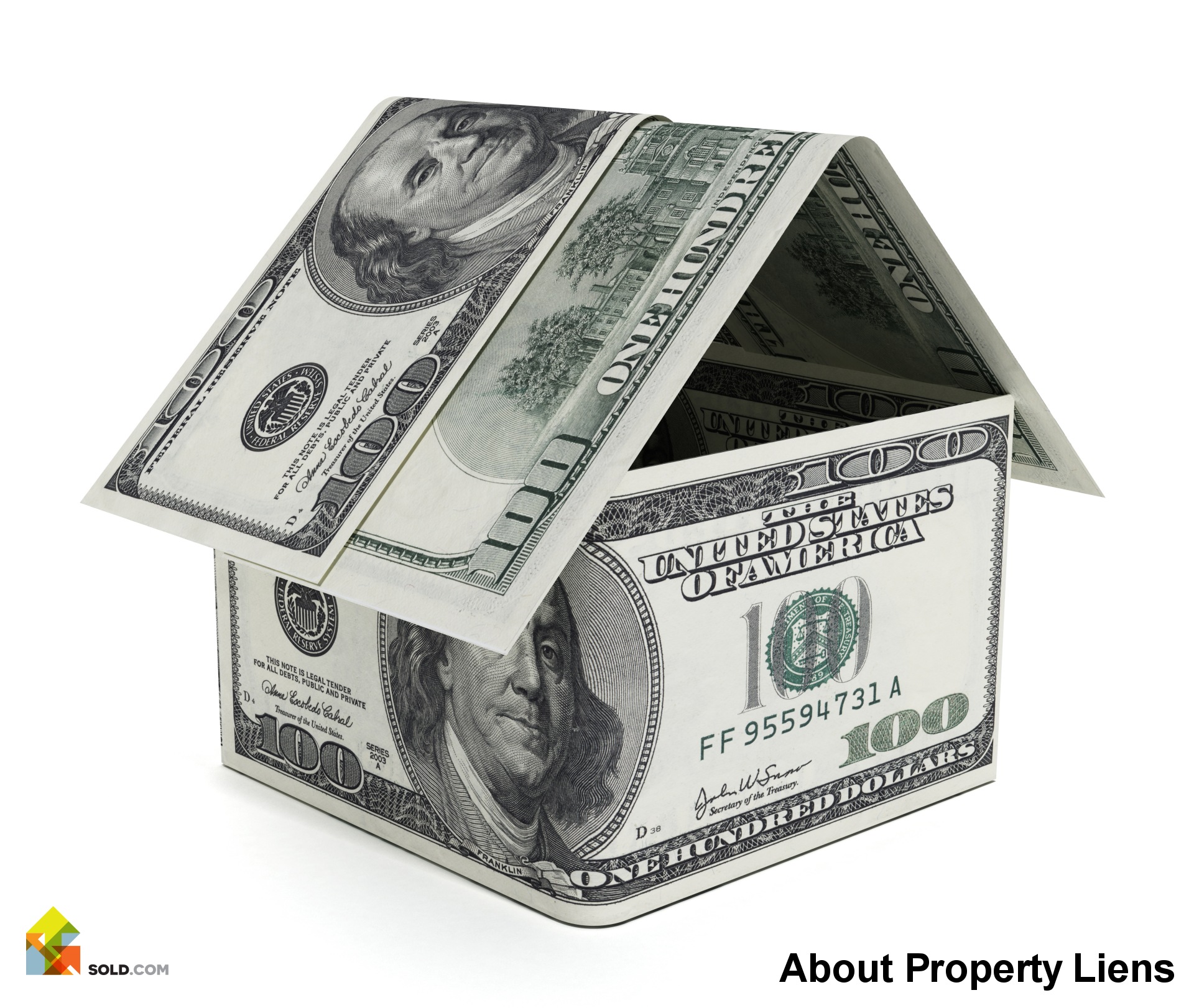
As you try to get your property sold, there are a number of obstacles that can impede your progress. One of the most significant obstacles is a property lien. Indeed, if you’re not aware that there is a lien on your property, or if you don’t address it proactively, it could stall or even squash your home sale.
Whether you’re selling your own property or working with an agent, it’s good to be aware of liens and all their implications. In this post, we’ll walk you through some of the basics. And as always, for individualized house selling tips, we invite you to grab your SOLD.com seller’s report.
What is a Property Lien?
Let’s start with a basic definition. A lien is essentially an unpaid debt. It usually reflects unpaid taxes, but it could also be from unpaid bills or from a judgment made in court. Even something like missing mortgage payments could lead to a lien on your property; and, if you hire home contractors or renovators and then don’t pay what you owe them, this, too, could be cause for a lien.
When a lien is placed on your home, it means the house cannot be sold or transferred to a new owner until those debts are paid. This can obviously have some implications for those trying to get their property sold!
Different Types of Liens
Liens come in different forms; we’re not going to list all of them here, but we will highlight a few of the most common ones. If you’re trying to sell your own property, these are the liens you’re most likely to contend with.
- A mechanic’s lien. This is the type of lien that’s placed on the property by an unpaid plumber, remodeler, or other vendor. Think of it as a kind of insurance policy… their way of ensuring they get paid sooner or later.
- A judgment lien. This is the lien that’s placed on your home when you lose a court case. In some cases, a judgment lien can be placed by an attorney if you haven’t paid your legal fees. Judgment liens are common if you lose a dispute with your HOA, as well, or if you fail to pay your HOA dues.
- A tax lien. Finally, if you fail to pay your taxes, the government itself may place a lien on your home. This can be the result of unpaid local, state, or federal taxes.
How a Lien Impacts Your Home Sale
With all of that said, how can a lien stall or sabotage the sale of your home?
Any time you begin a real estate transaction, the mortgage company will begin a search for any outstanding liens on the property. If one is uncovered, it will put a temporary hold on the entire transaction.
Mortgage companies won’t provide financing on the home until all liens are paid in full. The onus is on the seller, who must settle their liens in order for the transaction to continue. Of course, sellers can also refuse or dispute the lien, but this will typically put the transaction on an indefinite hold, and likely kill it altogether. (Buyers are rarely going to be willing to sit back and wait while you contest a lien, a legal process that could take a long time.)
If the transaction is entirely cash-based, and no mortgage company is involved, then the buyer and seller are welcome to try to work out an agreement of their own.
What if There’s a Lien on Your Property?
If it’s determined that there is a lien on your property, the first step is to ensure it’s truly a lien that you incurred. In some cases, it may be that the lien was actually incurred by someone else who just happens to have a similar name. You can ask your real estate agent or attorney about how you can clear up the matter; often, simply furnishing a photo ID is sufficient.
If the lien is indeed your responsibility, you’ll need to reach out to the lien holder to ask how to resolve the issue. Often, your payment of the lien can be taken directly from the proceeds of the real estate transaction. Thus, you don’t necessarily need a lot of cash on hand to make good on the lien.
More questions about liens? Ready for individualized house selling tips? Connect with us at SOLD.com today!

